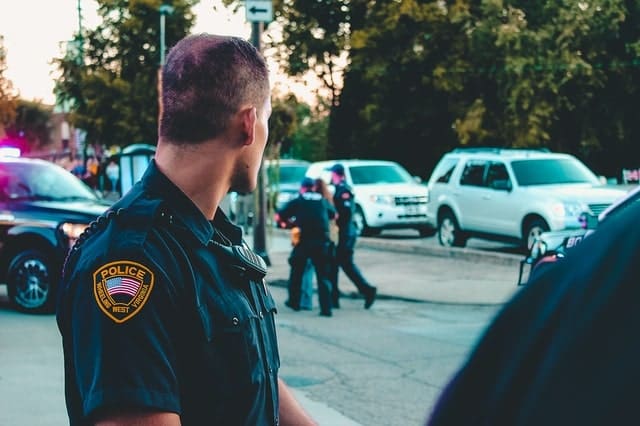How Can You Navigate Police Inquiries Regarding Sexual Assault Allegations?
No one wishes to discuss sexual assault allegations with the police. Unfortunately, sometimes, it is necessary. Occasionally, a person is wrongly accused due to a misunderstanding or retaliation.
However, if the police wish to discuss sexual assault allegations with you, remember that you have the right to remain silent.
Sexual assault allegations are serious accusations. It is often in your best interest to consult with a criminal defense lawyer when faced with sexual assault allegations. Speak with a lawyer from the Benjamin Law Firm, LLC. Even if you feel innocent of the crime, you can benefit from a free consultation.
What Are Sexual Assault Allegations?
Sexual assault allegations refer to accusations made against an individual regarding non-consensual sexual acts or misconduct. Some common types of sexual assault charges include the following:
-
Rape: Rape is one of the most severe sexual assault charges. It involves non-consensual sexual intercourse or penetration.
-
Sexual battery: This refers to the unwanted touching or groping of another person’s intimate body parts. It could involve touching or fondling breasts, genitals, buttocks, or other intimate body parts.
-
Aggravated sexual assault: Aggravated sexual assault charges may include using a weapon or causing serious bodily harm.
-
Sexual abuse: These charges involve the sexual exploitation or mistreatment of an individual. This can include acts such as child molestation, incest, or sexual activities with a person incapable of giving consent.
-
Sexual harassment: This refers to unwelcome comments, gestures, or other forms of physical or verbal conduct of a sexual nature. It can create a hostile, intimidating, or offensive environment.
Each type of charge carries its own legal implications and potential penalties ranging from fines to imprisonment. The severity of the penalties usually depends on factors such as the age of the victim, use of force or violence, and prior criminal history. By being aware of these various offenses, individuals can recognize and avoid activities that could get them in trouble.
What Happens When You Are Arrested for Sexual Assault?
When the police contact you regarding sexual assaults, you may feel compelled to talk to the police officers. You may wish to answer the officer’s questions. It is always wise to only do so with a lawyer present. Otherwise, you may accidentally incriminate yourself.
Arrest
When a person is arrested for sexual assault, a police officer takes them into custody based on probable cause. The arrest may occur immediately after the alleged incident. However, it can happen at a later time if a criminal investigation leads to the identification of a suspect.
The individual is informed of their rights. These include the right to an attorney and the right to remain silent.
Booking and Processing
After the arrest, the individual is taken to a police station or detention facility for booking and processing. This involves recording personal information, taking fingerprints, and photographing the suspect.
The process may also include searching through the suspect’s personal belongings. Officers could confiscate any items deemed relevant to the case.
Detention
Following the booking process, the individual may be held in custody pending further proceedings. The duration of detention can vary. It depends on the severity of the offense, the individual’s criminal history, and the jurisdiction’s laws.
In some cases, the court may grant bail or release conditions. These allow the individual to be released from custody temporarily while awaiting trial.
Formal Charges and Arraignment
After the arrest, the prosecutor reviews the evidence and decides whether to file formal charges against the accused. If charges are filed, the individual is informed of the specific allegations against them and is scheduled for an arraignment.
During the arraignment, the charges are read, and the individual enters a plea of guilty, not guilty, or no contest. The court then determines the next steps in the legal process.
Pretrial Proceedings
In the pretrial phase, both the prosecution and criminal defense attorney engage in the following:
-
Collect evidence
-
Document witness statement
-
Engage in negotiations
This process may involve hearings, motions, and discovery requests. These aim to establish the facts of the case and evaluate the strength of the evidence.
Trial
If the case proceeds to trial, a judge or jury will hear the evidence presented by both the prosecution and defense. The burden of proof lies with the prosecution, who must demonstrate the accused’s guilt beyond a reasonable doubt for a conviction to occur.

What Should You Do When the Police Question You About Sexual Assault Charges?
Invoke your right to remain silent. You have the right to remain silent to avoid self-incrimination. Politely inform the police that you would like to exercise this right until your attorney is present. Then, request legal representation. Ask the police to allow you to consult with your attorney before answering any questions.
While exercising your rights, it is crucial to remain cooperative. Provide necessary identification and other required information. However, refrain from answering any questions related to the allegations. Ask for your attorney to be present.
What Are Your Rights When the Police Want to Talk to You About Sexual Assault Allegations?
When you are arrested, you will be read your rights. The Miranda rights clearly state the following:
- You have the right to avoid self-incrimination by remaining silent during questioning.
- You have the right to consult with an attorney and have them present during any police questioning.
You are also entitled to fair treatment by law enforcement officers. That includes protection from coercion, intimidation, or harassment.
How Can an Attorney Help Someone with Sexual Assault Allegations?
Allegations of sexual assault are challenging and distressing. You need to remain calm, exercise your rights, and seek legal representation immediately. At The Benjamin Law Firm, LLC, we have attorneys experienced with rape, indecent liberties, and sexual assault defense who can help you with your case.
You can count on our team to guide you through the legal process, explain your rights, and develop a defense strategy tailored to your case. We will evaluate the evidence against you and identify any weaknesses or inconsistencies that can be used in your defense. We can also negotiate with prosecutors on your behalf for reduced charges or a plea agreement.
For questions about false allegations and sexual assault, talk to an attorney at the Benjamin Law Firm, LLC. Call today!
















